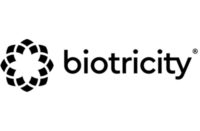Primary Results from RADIANCE II Trial Published in JAMA and Results of Pooled Analysis from Three RADIANCE Studies Published in JAMA Cardiology
PALO ALTO, Calif.–(BUSINESS WIRE)–ReCor Medical, Inc. (“ReCor”) and its parent company, Otsuka Medical Devices Co., Ltd. (“Otsuka Medical Devices”) today announced that primary endpoint results from the RADIANCE II pivotal trial were published in the Journal of the American Medical Association (JAMA). Study results showed that the Paradise Ultrasound Renal Denervation (uRDN) System successfully reduced blood pressure compared to sham. In addition, pooled analysis results from the combined primary efficacy endpoint and safety data from RADIANCE SOLO, RADIANCE TRIO, and RADIANCE II were concurrently published in JAMA Cardiology. Results of the pooled analysis showed a consistent blood pressure lowering effect across a broad range of hypertension, including mild to moderate and resistant hypertension.
RADIANCE II is a randomized, sham-controlled US FDA IDE pivotal trial of the Paradise uRDN System in the treatment of patients with uncontrolled hypertension. Conducted as an international multicenter study at more than 60 study centers in eight countries, 224 patients with uncontrolled hypertension were randomized 2:1 to uRDN or a sham. Patients were to remain off antihypertensive medications throughout the two months of follow-up unless specified BP criteria were exceeded. At the two-month primary efficacy endpoint, patients treated with the Paradise uRDN system had a mean reduction in daytime ambulatory systolic blood pressure of -7.9 mmHg, compared to a reduction of -1.8 mmHg in the sham arm, corresponding to a statistically significant and clinically relevant between-group difference of -6.3 mmHg (p<0.0001). The study also achieved its primary safety composite outcome with no major adverse events observed.
Concurrently published in JAMA Cardiology, the RADIANCE pooled analysis includes data from more than 500 patients randomized in the three studies from ReCor’s RADIANCE Global Program: RADIANCE-HTN TRIO, which studied patients with resistant hypertension, and RADIANCE-HTN SOLO and RADIANCE II, which studied patients with mild-moderate hypertension. The combined dataset showed an overall reduction in daytime ambulatory systolic BP in the uRDN group of -8.5 mmHg with a difference between treatment and sham at two months of -5.9 mmHg (p<0.0001), favoring uRDN. Blood pressure results were similarly positive in the 24-hour, nighttime, home, and office measures. A favorable safety profile was consistently observed following uRDN treatment across the studies.
“The results of the RADIANCE clinical trials are meaningful in that they solidify the role of the Paradise uRDN System as an adjunctive therapy for hypertension treatment, in addition to medications and lifestyle modification. Having three consistent sham-controlled clinical trials demonstrating that the Paradise uRDN System can safely lower blood pressure across a range of patients is a very high bar to have met,” said study principal investigator Dr. Ajay Kirtane, Professor of Medicine at Columbia University, Vagelos College of Physicians and Surgeons and NewYork-Presbyterian Hospital.
Study principal investigator Michel Azizi, Professor of Medicine at Université Paris Cité, Hôpital Européen Georges Pompidou, Paris, France, added, “The pooled analysis of RADIANCE SOLO, TRIO, and RADIANCE II shows a remarkable consistency of effect in patients with mild to moderate hypertension and those with resistant hypertension. These results are in line with the new 2023 consensus statement of the European Society of Cardiology (ESC) Council on Hypertension and the European Association of Percutaneous Cardiovascular Interventions (EAPCI). The publication of these results in JAMA and JAMA Cardiology will bring the evidence of the performance of uRDN in the treatment of hypertension to a broad audience of physicians.”
“With hypertension being a leading cause of cardiovascular disease worldwide, it is vital that we help patients with an effective therapy to reduce blood pressure. We are pleased that the RADIANCE clinical trials have repeatedly shown that the Paradise uRDN System can successfully reduce blood pressure in a broad range of patients,” said ReCor President and CEO, Lara Barghout. “ReCor is focused on bringing the Paradise uRDN System to patients and their physicians as a treatment option in the near future.”
About ReCor Medical, Inc.
ReCor Medical, headquartered in Palo Alto, CA, a wholly owned subsidiary of Otsuka Medical Devices Co., Ltd., is a medical technology company focused on transforming the management of hypertension. ReCor has pioneered the use of the Paradise Ultrasound Renal Denervation (uRDN) System for the treatment of hypertension. The Paradise System is an investigational device in the United States and Japan and bears the CE mark in the EU. ReCor has reported positive outcomes in three independent, randomized, sham-controlled studies of the Paradise System in patients with mild-to-moderate and resistant hypertension, and has submitted an application for PMA approval in the United States with the U.S. FDA. In addition, ReCor has begun the Global Paradise System (“GPS”) Registry in the European Union, with plans to expand globally.
About Otsuka Medical Devices Co., Ltd.
Otsuka Medical Devices focuses on the global development and commercialization of medical care products including endovascular devices that provide new therapeutic options in areas where patient needs cannot be met through pharmaceutical or other conventional treatment. Otsuka Medical Devices Co., Ltd. is a subsidiary of Otsuka Holdings Co., Ltd. (www.otsuka.com/en), a global healthcare company listed on the Tokyo Stock Exchange (JP 4578).
Contacts
Annika Parrish
Health+Commerce
annika@healthandcommerce.com






